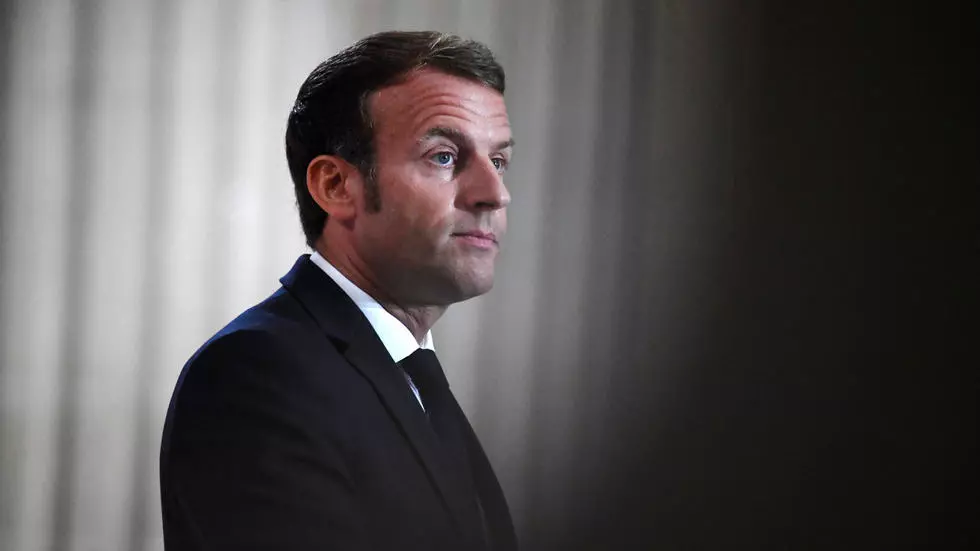Macron: Europe will not compromise with U.S. over Iran sanctions

TEHRAN — French President Emmanuel Macron said on Tuesday that Europe would not compromise with Washington over its move to reimpose international sanctions on Iran in violation of the 2015 nuclear agreement.
“We will not compromise on the activation of a mechanism that the United States is not in a position to activate on its own after leaving the agreement,” Macron told the UN General Assembly's 75th session by video from Paris, France 24 reported.
“This would undermine the unity of the Security Council and the integrity of its decisions, and it would run the risk of further aggravating tensions in the region,” he warned.
Macrons warned that the so-called snapback mechanism could undermine the UN Security Council and increase tension in West Asia.
He also censured the United States’ “maximum pressure” policy on Tehran, saying it had failed to ensure Iran would not acquire a nuclear weapon – an allegation that Tehran has vociferously rejected.
The U.S. administration of Donald Trump has announced that it is reimposing all UN sanctions on Iran lifted under the nuclear deal, formally known as the Joint Comprehensive Plan of Action (JCPOA).
The JCPOA was signed in 2015 under the Obama administration. Observers argue that Trump’s hostility toward Obama is a major reason for his withdrawal from the deal in May 2018.
Colin S. Cavell, a full professor of political science at Bluefield State College in West Virginia, tells the Tehran Times that Donald Trump pulled the U.S. out of the nuclear deal “to negate an international agreement negotiated by his African American predecessor, Barack Obama.”
Washington says it can reimpose the sanctions because a UN resolution that enshrines the pact still names it as a “participant” in the accord, a position denounced by all other participants to the deal and non-permanent members of the UN Security Council.
Tehran has compared Washington’s argument to a hypothetical argument by a person who has divorced from another person but still claims their marriage certificate still names them as spouses.
Macron also said additional frameworks were needed for effectively dealing with Iran’s nuclear program, adding there needed to be a “capacity to complete” the 2015 pact.
These would ensure that “we will provide responses to Iran’s ballistic activity, but also to its destabilization in the region,” he said.
Macron insisted that France, along with its European allies Britain and Germany, would keep up its demand for “full implementation” of the Iran nuclear deal.
He added that they would “not accept the violations committed by Iran,” which has ramped up its nuclear activity in response to the U.S. withdrawal and inaction by the remaining parties, especially Europeans, to offset sanctions imposed by the Trump administration.
In May 2019, a year after the U.S. withdrawal from the JCPOA, Tehran declared that its “strategic patience” is over and began to gradually reduce its commitments under the pact to both retaliate for Washington’s departure and Europeans’ failure to honor their commitments.
On January 5 of this year, Iran took a fifth and last step in reducing its commitments and said it would no longer observe any operational limitations on its nuclear industry, whether concerning the capacity and level of uranium enrichment, the volume of stockpiled uranium or research and development.
However, Iran has insisted if the Europeans honor their obligations it will immediately reverse its decisions.
MH/PA
Leave a Comment